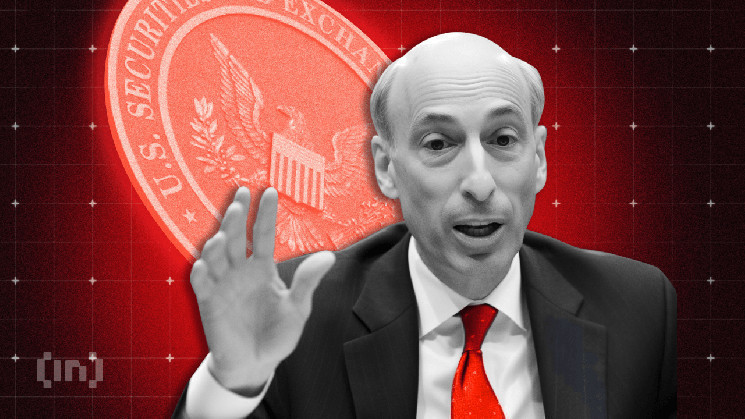Alexander Grieve, Paradigm’s VP of Government Affairs, detailed what is wrong with the US Securities and Exchange Commission’s (SEC) policies.
It marks the second dissection that Paradigm, an investment firm known for throwing money behind many of the crypto industry’s mainstays, has made of the infamous securities regulator.
US SEC’s Hand Always Ready To Hit Wells Notice Buzzer
Grieve slams the US SEC for “carpet-bombing” the crypto industry in the name of “investor protection.” This includes issuing Wells Notices against anything value-adding that sprouts in the crypto market.
“Under this Chair, and this Enforcement Director — if you have built anything of value in crypto, you’ve found yourself on the receiving end of a subpoena, a Wells Notice, or an enforcement action/lawsuit, or all three,” Grieve wrote.
Coinbase was one of the victims of regulatory action, receiving a Wells Notice in September 2021 regarding its proposed Lend product, just five months after the SEC approved its business model, products, and IPO. In March 2023, Coinbase received another Wells Notice.
Read more: What Does It Mean To Receive a Wells Notice From the SEC?
Similarly, the SEC sued Kraken over its staking activities, forcing the exchange to relocate those services outside the US and pay a $30 million fine. This occurred despite Kraken settling with the regulator earlier that February.
Binance, the largest crypto exchange by trading volume, has also faced regulatory scrutiny across its operations. Other cases include actions against Robinhood, Uniswap, ConsenSys, OpenSea, and D.E.B.T. Box.
Regulator Forum Shops and Uses Barbell Approach
Highlighting that the cases against Kraken, Coinbase, and Binance were each filed in different jurisdictions, Paradigm’s Vice President accused the SEC of “forum shopping.” This legal term refers to choosing the most favorable court for a claim. It’s a strategy used by litigants to increase their chances of a favorable outcome.
The Paradigm executive also criticized the SEC’s “barbell” approach to crypto regulation. According to the VP, the SEC targets smaller entities that opt for settlements over legal battles due to limited resources. The regulator then uses these precedents to pursue larger companies, leveraging the initial settlements in subsequent cases.
“This is part of the SEC’s strategy: instead of just focusing on just one single company, they sue a company and allege that all sorts of other companies/projects/tokens/protocols (who may not be able to defend themselves) are securities as part of the case,” Grieve added.
This is not the first time Paradigm has criticized the SEC. BeInCrypto recently reported the venture capitalist’s dissection of Gary Gensler’s tenure chairing the commission. The dissection came after the SEC’s joint testimony revealed 784 enforcement actions in 2023, resulting in $4.9 billion in penalties and disgorgement.
In the research, Paradigm policy manager Brendan Malone detailed that the SEC has taken 171 enforcement actions against the crypto space since 2021. The pace of enforcement escalated since Gensler started leading the commission.
Read more: Crypto Regulation: What Are the Benefits and Drawbacks?
Malone criticized the SEC for using litigation to address policy matters instead of establishing clear regulations. He further condemned the agency for targeting individuals with limited resources, aiming to set precedents on token issuance cases by pressuring them into settlements.
On the same note, Hester Peirce recently admitted to the flaws in SEC crypto policy enforcement, as the agency’s handling of cryptocurrency regulations came under scrutiny before Congress and the Senate Banking Committees last week.
Read the full article here









